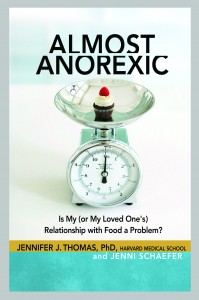When I entered into recovery for my eating disorder right around the turn of the millennium, my phone was one of my greatest assets. If I got the urge to binge, I called a friend. If I struggled with eating a meal, I called a friend. If I felt scared and lonely, you guessed it: I called a friend. But, these days, many of us rarely use our phones to actually make calls. Picking up the phone means so much more. And, of course, that brings with it both positive things as well as #dotcomplication.
Today’s technology essentially puts recovery in the pockets of those healing from eating disorders, addictions, and trauma. Mobile apps abound, including Recovery Record for eating disorders, PTSD Coach addressing trauma, and Hazelden’s award- winning Mobile MORE® Field Guide to Life focusing on addiction. And, unlike years ago, individuals who struggle in remote geographical areas can now access expert care, thanks to the growing number of clinicians who use Skype and video calling.
Online forums as well as tools like GoToMeeting have enabled people from all over the world to join together in support and therapy groups. Technology obviously doesn’t just help those who struggle with addictive behaviors and trauma. We are all essentially “in recovery” from life. I personally find it beneficial to receive inspirational quotes and images in my Facebook and Twitter feeds. I have also used timers and reminders on my phone to prompt me to “Breathe,” and “Be grateful.” If you desire greater self-compassion, here’s a unique tool that has worked for some: set the background image on your smartphone as a photo of yourself from when you were a small child. This picture can remind you to be a bit gentler and kinder when that self-critical voice starts chiming in. (Many won’t easily berate an adorable child smiling back at them.) If this idea proves helpful, take it a step further by setting that same childhood image as the actual photo of the people who call you the most. When mom calls, you will be forced to see that picture of you at age two, and again, maybe even just for a moment, you will practice greater compassion toward yourself.
According to a survey by the Center for Eating Disorders at Sheppard Pratt, technology doesn’t always build self-love. As it turns out, comparing on Facebook can actually lead to despairing in real life. 51 percent of users surveyed said that they often find themselves comparing their life to that of their friends when they read status updates and see pictures posted. The end result is that 32 percent feel sad when comparing Facebook photos of themselves to their friends, and 44 percent spend time wishing they had the same body or weight as a friend. Over a third actually believe that they need to change specific parts of their body when comparing online. With social media, guard against comparing your “insides” (how you feel and what is really going on in your life) to someone else’s “outsides” (their body and what they selectively share online).
Remember Old-Fashioned Connection
Social networking can be a lifeline for many, including my mom, who is battling an extremely rare form of cancer. As the result of a private Facebook group, Mom has been able to connect with a few other people on the planet who suffer from the same type of cancer. But, importantly, this group isn’t my mom’s sole source of support. If it were, I doubt she would be beating her illness like she is so courageously doing today. In her everyday life, my mom has always had countless close friends and family members, like me, who love and support her. When she first got sick, her and Dad’s home was literally covered with hundreds of supportive “get well” cards—handwritten from people all across the country. That meant more to her, so much more, than hundreds of people quickly posting short notes on her Facebook Timeline. To be quite honest, my mom only joined Facebook to be a part of that lifesaving little group. She isn’t even quite sure what her Timeline is—forever confusing that with her news feed!
There are lots of exciting tools ahead for those who struggle in life. (Yeah, I think that’s just about everyone.) In particular, if you battle binge eating, stay tuned for resources currently being designed just for you. Drexel University’s “Take Control” mobile app actually “learns” about a person’s pattern of binge eating and can send an alert when the risk for overeating is high. Researchers are even studying virtual reality to assist those overcoming binge eating disorder. To practice living in an often smaller body in what can feel like a confusing new world, some are actually jumping into their screens to gain experience being at the grocery store, in a restaurant, and even the swimming pool.
* * *
Despite all of its advantages, sometimes, what we really need to do is put the phone down. On my recent honeymoon in New Zealand, I left my phone and computer at home. Using Randi’s words, “untangling my wired life” was the best way to begin my new marriage. While I untangled myself, my cell phone carrier must have been unwinding a bit, too. Because the company somehow lost all of the text messages that were sent to me during that time. Apparently, my phone just couldn’t handle being turned off for three whole weeks. Instead of Google’ing “how to find missing text messages,” I felt a deep gratitude for the peace and time that I had just gained— no need to play catch up with texting. All of my friends who sent me a text between will never receive a response. In a way, they, too, gained a bit more precious time, that is, unless they were wasting time worrying about why I never responded. Yes, it is indeed complicated.
Comment on this post to be entered into a giveaway for Jenni’s most recent book, Almost Anorexic: Is My (Or My Loved One’s) Relationship with Food a Problem? Winner will be selected randomly on 12/20/2013.
Update: The winner has been chosen through a random number generator. Congratulations Hadley Ordway!
Posted on 12/13/2013
Jenni Schaefer is an internationally known speaker, accomplished singer/songwriter, and bestselling author. She has appeared on shows like Today and Dr. Phil, as well as publications ranging from Cosmopolitan to The New York Times. Her books include Life Without Ed; Goodbye Ed, Hello Me; and her latest with Harvard Medical School, Almost Anorexic: Is My (or My Loved One’s) Relationship with Food a Problem? Jenni lives in Austin, Texas, where she can often be found exploring the outdoors—far from her smartphone! For more information: JenniSchaefer.com.
















Leave A Comment
You must be logged in to post a comment.